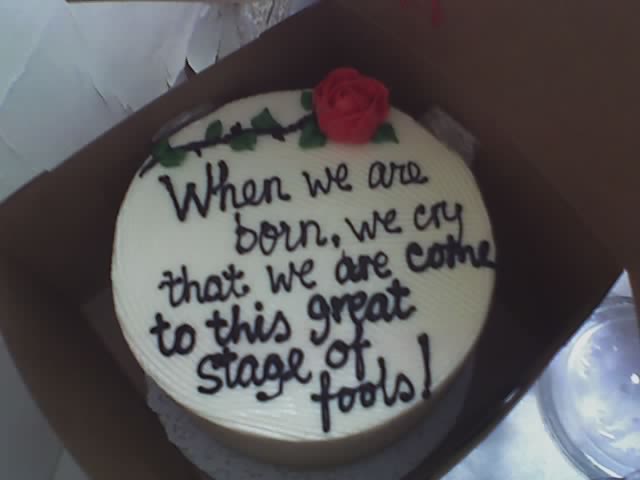I subscribe to a service called “SiteMeter” which allows me to see a limited amount of information about my visitors. One thing that I can see is if someone finds my site via a Google search. Recently, I’ve had a number of hits from people looking to find out about living descendants of King Henry VIII. My site isn’t really about that, but I thought I’d provide an answer anyway, as a public service.
There are no living descendants of King Henry VIII.
Henry’s father, King Henry VII, had four offspring who lived past childhood: Arthur, Margaret, Henry, and Mary. Arthur was always expected to be the next king, but he died in 1502. When Henry VII died in 1509, the kingdom was passed to his younger son, crowned Henry VIII.
Henry VIII had four known living offspring from four different women. His first wife, Catherine of Arragon, gave him a daughter, Mary (born 1516). He had an illegitimate son, Henry FitzRoy (born 1519), with his mistress Elizabeth Blount. His second wife, Ann Boleyn, had a daughter Elizabeth (born 1533). His third wife, Jane Seymour, had a son, Edward (born 1537). Henry VIII would have three more wives, but no more children to carry on his line. And as we shall see, none of his four branches would bear fruit.
Henry FitzRoy died in 1536, while his father was still alive.
When Henry VIII died in 1547, young Edward became King Edward VI, but died in 1553 with no heir. He was 15 years old. That was the end of Henry’s Y chromosome. But what about the daughters?
There was a brief reign by Lady Jane Grey (not a descendant of Henry VIII, but a granddaughter of his sister Mary) and then Henry VIII’s daughter Mary took the throne as Queen Mary I of England. You may know her as Bloody Mary.
(Don’t confuse either Mary with Mary Queen of Scots, who was yet a third Mary. She is a descendant of Henry VIII’s sister Margaret. We’ll come back to her in a bit.)
Mary I of England died in 1558 with no offspring, leaving the country in the capable hands of her sister Elizabeth. During the 45-year-long reign of Queen Elizabeth I, we saw a new Golden Age which included the rise of Shakespeare and Sir Francis Bacon. But alas, we saw no heir. Elizabeth died in 1603, ending her father’s biological legacy forever.
The crown then passed to the son of Mary Queen of Scots, who was James VI of Scotland at the time. He became King James I of England. And Shakespeare quickly began work on Macbeth. Note that the British monarchy even today can be traced back to King Henry VII, the father of King Henry VIII.
But King Henry VIII himself has no known living descendants.
I hope this was helpful for at least some of you. For the rest of you, expect a new Conundrum tomorrow.
UPDATE: An anagram version of the answer!

